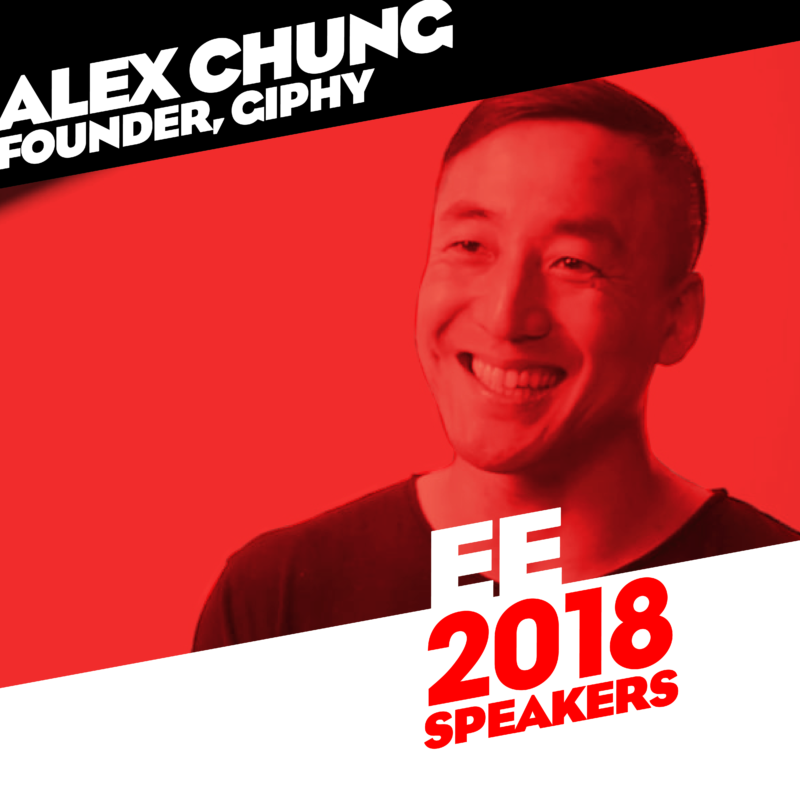At the penultimate week of Lightspeed EE, the finalists and I were in conversation with the guru of pop culture, Alex Chung, co-founder and CEO of Giphy (a Lightspeed portfolio company). Alex is a serial entrepreneur and a pioneering thinker on consumer and new age media. In a little over 5 years, Giphy has come to serve over 6 billion stickers to 500 million users every day.
- Growth is paramount for startups. Set bold targets and reverse engineer your path. Don’t work the other way around. Growth matters even more than retention in the early days
- For growth, creativity matters more than marketing spend. Don’t buy growth
- At early stages, line up entire organization (not ‘growth hackers’) behind growth targets
- When introducing new content formats, focus on bringing content creators first. The rest of the world will eventually follow
- Content vs platform, UGC vs PGC, social network vs utility are important choices for new content company founders
Set audacious goals and reverse engineer your path
Growth is of paramount importance in the early days – more than other metrics like retention –because if you don’t have strong growth, you could find it difficult to raise next round of funding. Most startups gain some good initial traction, but hit a peak right after (the ‘valley of despair’). Same was the case with Giphy when it started plateauing around 300K MAUs after the first few months.
“We always started with the growth target first and then reverse engineered the plan. If we were at 300K MAUs, we said we’ll do 3M MAUs (which later turned to 30M, 300M…) in the next 12 months or we’ll quit! Setting impossible goals forces you to take risks and makes you creative.”
Alex added two additional perspectives on growth: Firstly, that growth should not be bought, it should be cracked through creativity. Just because Giphy was setting 10x growth targets didn’t mean its marketing budget was ballooning. Instead, they innovated and got distribution through Facebook Messenger, which did not support GIFs at the time, but then they just had to.
Secondly, in early days ownership for growth should be held collectively by the team. He compares this to joining a band – everyone plays music TOGETHER, even if each might have his own favourite instrument. ‘If someone’s not contributing to growth, why are they in the team?’ Alex asked the audience. He dispelled the idea of hiring growth hackers saying he didn’t know who those people were!
For new content formats, start with the creators
Media companies are about content and distribution. Often, you can’t get one without the other and have to pick a side to begin with. Giphy started out as a search engine for GIFs, but it didn’t have enough content to get any kind of distribution (unlike Google which already had enough web pages to organize). In order to seed the content, the team made a bunch of creation tools and became the pipeline for where the content was coming from!
“When introducing new content formats, identify that small ‘core’ creator base that is most excited and will add credibility to your product. Train them, incentivize them to produce content, make them feel at home, and own ALL of them. The rest of the world will show up eventually.”
Tradeoffs: Content vs platform and UGC vs PGC
Alex had an interesting take on the content vs platform debate. While popular opinion often hails platforms, Alex thought platform is more or less a commodity, and content is where the differentiation lies. That’s why he built Giphy into primarily a media company, a utility that everyone needs.
He also made the choice to go PGC (professionally generated content) and not UGC (user generated content). While UGC is more scalable, it will always remain a high volume commodity. Alex felt the brand of content is important (e.g. Netflix, Masterclass, Lynda.com) and the hassles of getting together actors-production-equipment create valuable barriers to entry. In Giphy’s case, PGC also had better economics as cost of creating/licensing limited high-quality content was much lower than moderating high-volume, low quality user generated content. Of course, in the end, founders need to pick what’s right for their business. Couple of other points that Alex offered:
- It is easier to start as a PGC platform, and then move to UGC. Very difficult to do it the other way around.
- It is also harder to monetize in UGC (e.g. Reddit still faces the problem) vs. high quality content platforms like Hulu and Netflix.
Entrepreneurship is a long game
99% of young, highly energetic kids entering the world of entrepreneurship have just one startup in them, and quit pretty soon. Often, they may not have done anything particularly wrong, but the cause of failure might just be that they are too early to the market. “If you play the long game in entrepreneurship, you will eventually taste success. I’ve started 12+ companies in the last 20 years and most failed. There will come a day, when you will be at the right place at the right time.”


This design is spectacular! You definitely know how to keep a reader entertained.
Between your wit and your videos, I was almost moved to start
my own blog (well, almost…HaHa!) Great job.
I really loved what you had to say, and more than that, how you
presented it. Too cool!
Thank you for posting this awesome article. I’m a long time reader but I’ve never been compelled
to leave a comment. I subscribed to your blog and shared this on my Facebook.
Thanks again for a great article!